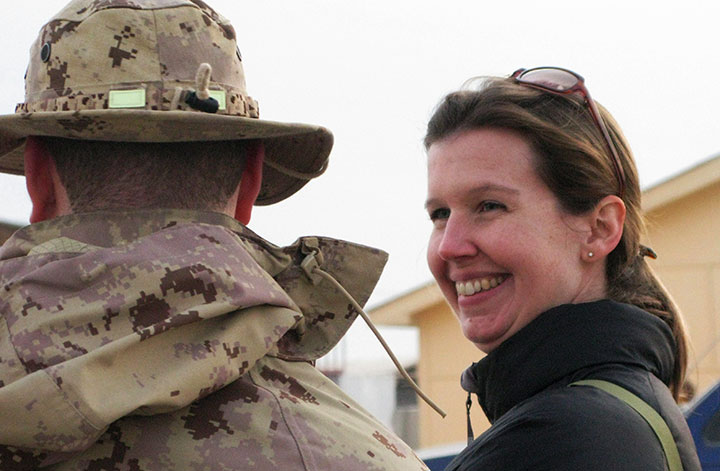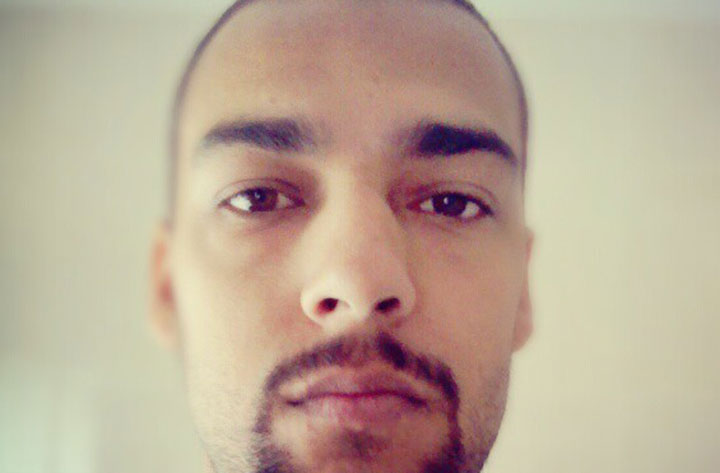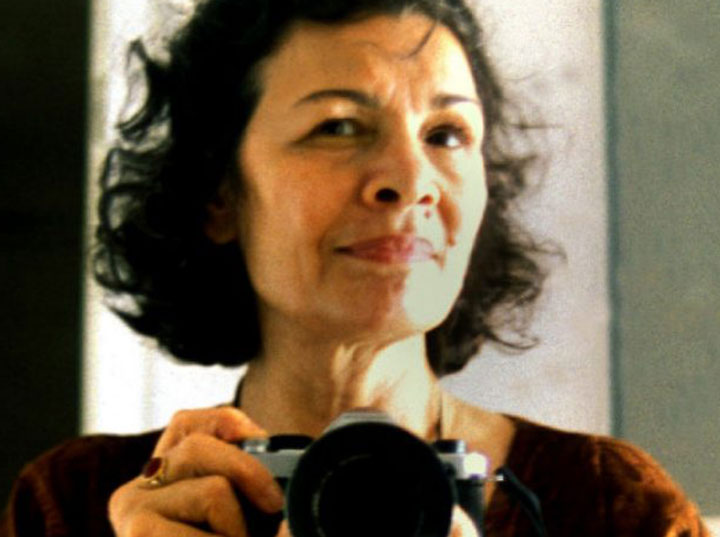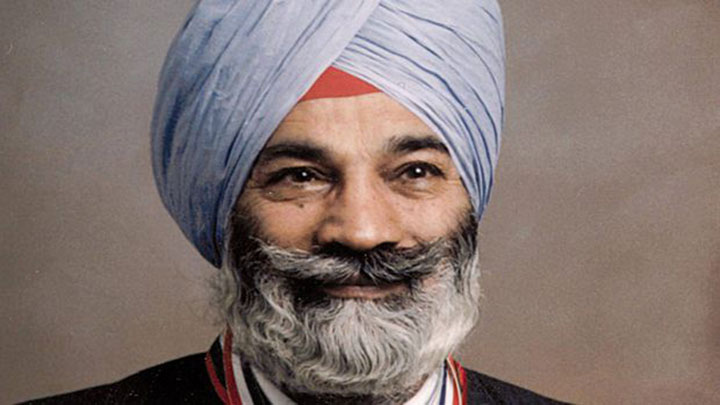Thursday marks World News Day, a day that celebrates the importance of journalism, the stories reporters tell and the sacrifices made in the pursuit of the truth.

The Canadian Journalism Foundation launched its first World News Day, which coincides with World Press Freedom Day, a day proclaimed by the United Nations in 1993 to celebrate press freedom and honour the journalists who lost their lives while doing their job.
World News Day comes just days after nine journalists were killed in a suicide bombing in Afghanistan. Since 1992, four Canadian journalists have been killed as a result of the work they do.
WATCH: Hostility towards media is threat to democracy

Michelle Lang
Michelle Lang, a journalist with the Calgary Herald and Canwest News Service, was killed in December 2009 while on assignment in Kandahar, Afghanistan. The 34-year-old and four Canadian soldiers were killed in a roadside bomb blast. Canwest, now Postmedia, created the Michelle Lang Fellowship in Journalism, in the wake of the journalist’s death.
Ali Mustafa
Ali Mustafa was a Toronto-based freelance photojournalist, writer and activist. The 29-year-old was documenting Syria’s civil war when he was killed in an air strike in March 2014. His family said at the time that Mustafa “wanted the world to know about human rights and all the horrible things going” on in Aleppo.
The Ali Mustafa Memorial Award for People’s Journalism was created following the photographer’s death. The award pays tribute Mustafa’s photography, and awarded to a Canadian-based freelance photojournalist.
Zahra (Ziba) Kazemi
Zahra (Ziba) Kazemi was a Canadian-Iranian freelance photojournalist who covered the daily lives of Iranians. She was arrested in 2003 by government officials while she was photographing a protest outside a prison in Tehran. Kazemi was tortured, beaten and raped while in detention. She later died after being transferred to a hospital.

Get daily National news
Tara Singh Hayer
Tara Singh Hayer was a journalist and editor of the Vancouver-based Indo-Canadian Times who was assassinated in November 1998. The 62-year-old was left paralyzed after an attempt on his life was made in 1988. Hayer, a moderate Sikh, was an outspoken critic of India’s ruling party and Sikh extremism in both Canada and India. In 1999, Canadian Journalists for Free Expression (CJFE) renamed its Canadian Press Freedom Award in honour of the late journalist.

“His murder demonstrated that protecting freedom of expression is a matter of concern not just beyond our borders,” the CJFE said. “The Tara Singh Hayer Award recognizes a journalist who, through his or her work, has made an important contribution to reinforcing and promoting the principle of freedom of the press in this country or elsewhere.”
A globally dangerous job
So far this year, 26 journalists have been killed around the world. In 2017, 262 reporters were imprisoned and there are currently 58 journalists reported missing around the world, according to the Committee to Protect Journalists (CPJ).
Just last week, ISIS suicide bombers struck in Kabul, Afghanistan, killing 25 people, including nine journalists who had rushed to the scene of the attack. A tenth Afghan journalist was killed in a shooting. It was the deadliest assault on reporters since the fall of the Taliban in 2001.
WATCH: Prime Minister Justin Trudeau calls free media essential to nation’s strength

A BBC reporter, an Agence France-Presse photographer, a cameraman for the local Tolo TV station and several reporters for the Afghan branch of Radio Free Europe were among the fatalities, police said.
Violence against the press is not just limited to Afghanistan. Around the world, journalists face dangers from hostile governments, political groups and organized crime, all hoping to silence the media.
Here are five countries where freedom of the press is most under attack, according to the Reporters Without Borders’ 2018 World Press Freedom Index.
North Korea
The 2018 World Press Freedom Index ranked North Korea as the most censored country in the world.
Headed by Kim Jong Un since 2012, the country’s “totalitarian regime keeps its citizens in a state of ignorance,” Reporters Without Borders stated.
Nearly all the content of North Korea’s 12 main newspapers, 20 periodicals, and broadcasters comes from the official Korean Central News Agency, which focuses on the political leadership’s statements and activities, the CPJ reported.
“North Koreans looking for independent information have turned to bootlegged foreign TV and radio signals and smuggled foreign DVDs, particularly along the porous border with China,” the CPJ said.
WATCH: Reporters Without Borders warns of eroding press freedoms
Eritrea
Eritrea, in northeast Africa, ranked second on the list.
“Only state media is allowed to disseminate news…Even those working for the heavily censored state press live in constant fear of arrest for any report perceived as critical to the ruling party, or on suspicion that they leaked information outside the country,” the CPJ reported.
The nation’s president, who has been called a “predator of the press” has created a media climate so oppressive that the threat of imprisonment has led many journalists to choose exile rather than risk arrest, Reporters Without Borders stated.
Turkmenistan
The Turkmenistan government has a long record of arresting, threatening and torturing journalists or anyone who criticizes the government.
The government controls all media and the limited number of internet users are only able to access highly censored information, according to Reporters without Borders.
“The Turkmen government tolerates no criticism and harshly punishes people who try to question government policies,” Human Rights Watch reported.
Syria
Syria’s ongoing civil war has made it one of the world’s deadliest countries for journalists. Reporters are victims of violence by all parties, including the Syrian military, armed opposition groups, including ISIS, and Kurdish forces, according to Reporters Without Borders.
READ MORE: Harrowing images of Syria ‘s war shows 10 days of devastation after bombings, airstrikes
“Frequent intimidation, arrests, abductions, and murders constitute a horrendous environment for the media. Since the start of the uprising, citizen-journalists have created new media outlets to shed light on the various aspects of the war,” the organization reported.
China
For more than a decade, China has been among the top three jailers of journalists in the world, according to CPJ.
China’s state and privately owned media are now under the Communist Party’s close control. More than 50 journalists and bloggers are currently detained in conditions that pose a threat to their lives, Reporters Without Borders said.
READ MORE: Nobel peace winner, activist dies from cancer in Chinese prison
Liu Xiaobo, a Nobel peace laureate and winner of the RSF Press Freedom Prize, and Yang Tongyan, a dissident blogger, both died in 2017 from cancers that were left untreated while they were detained.
















Comments